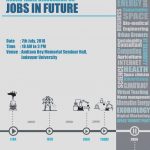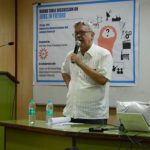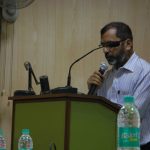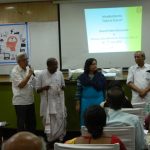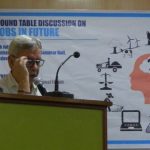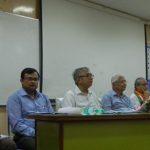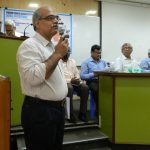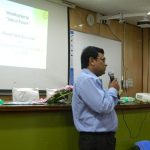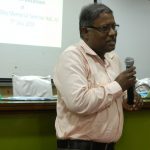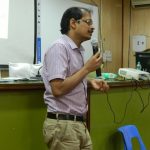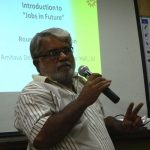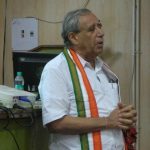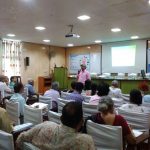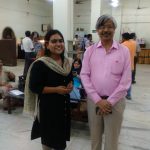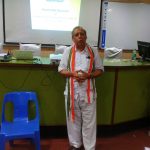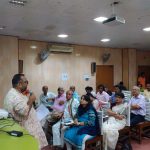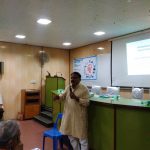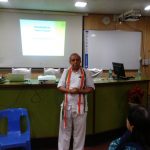Round table discussion on “Jobs in Future”
A background note
A: Perspective and the trigger
The future of jobs has become a major issue of concern. The world today is at an inflection point due to rapid technological advancement leading to economic, social and political turmoil. Manifestations in many cases of this malaise in its ugliest forms are seen all across the globe. Developed countries have now experienced almost two decades of stagnation in economic growth with outsourcing of jobs in manufacturing and the services sector to less expensive destinations in the developing world. A report says that 45% of the global working age population is under-utilized – unemployed, inactive or underemployed.
At this juncture, we are entering into full blast of the 4th industrial revolution with Artificial Intelligence, 3 D Printing, Nano-technology, Internet of Things etc. The ‘Fourth Industrial Revolution’ will lead to massive loss of low-skilled jobs and create all-together different types of white colored jobs. Digitization and Artificial Intelligence are now advancing even more rapidly and fundamentally changing the way business and society works. To place it in the debate, all these will have a tumultuous impact on jobs, ranging from significant job creation to job displacement, and from heightened labor productivity to widening skills gaps. In many industries and countries, the most in-demand occupations or specialties of today did not exist 10 or even five years ago, and the pace of change is set to accelerate. We are clearly living in a new reality characterized by Volatility, Uncertainty, Complexity and Ambiguity, and this new world is here to stay.
Disruptive changes to business models will have a profound impact on the employment landscape over the coming years. Once powerful countries in Europe are now fighting bankruptcy. We have taken growth in the developing part of the world for granted, but economic growth in China and India – growth engines for the world economy – has begun to slow. Companies that were synonymous with their product categories just a few years ago are now no longer in existence. Kodak, the inventor of the digital camera had to wind up its operations. HMV, the British entertainment retailing company and Borders, once the second largest US bookstore, have shut down due to their inability to evolve their business models with the changing times. In such a rapidly evolving employment landscape, the ability to anticipate and prepare for future skills requirements, job content and the aggregate effect on employment is increasingly critical for businesses, governments, families and individuals in order to fully seize the opportunities presented by these trends—and to regroup ourselves against undesirable outcomes.
Since industrial revolution, unemployed labor force from one sector were redeployed to another sector but by one popular estimate, 65% of children entering primary school today will ultimately end up working in completely new job types that don’t yet exist. The Child does not know where he is going to land when he grows up! Unemployment in one sector leads to no employment! In view of this, economists are arguing for decoupling income with a concept called Universal Basic Income to immunize the workers from unemployment and is experimented in a few developed countries.
India is going through a well-documented employment creation crisis. This is despite a GDP recovery to some extent. The employment elasticity which states the relationship between GDP and Job creation growths remained only 0.44 in 1999-2000 to 2004-05 period and only 0.01 in 2004-05 to 2009-14 period. The single largest sector of the Indian economy (i.e. agriculture), in terms of employment, has been performing worse than the economy as a whole. For the past few years rates of growth in agriculture have been below those in all other sectors of the economy. The overall proportion of informal workers in total employment (e.g. unorganized sector workers plus informal workers in the organized sector) has remained at around 92 per cent. In India, Informality persists and the quality of employment remains the main challenge.
Every year, 10-12 million young people join the labor force, and millions more leave agriculture, thus necessitating the creation of 17-20 million jobs per annum. With much fewer jobs actually created in the last 5-10 years, the cumulative impact and future job needs must be considered together.
India has the world’s largest youth population, with 354.4 million people aged between 15 and 29, representing a population share of 27 per cent (compared to 314.1 million and a share of 22.8 per cent in China). Despite an increase in general education levels, the youth unemployment situation continues to be a major challenge. As in other countries, young people are far more vulnerable to being unemployed in India, particularly in urban areas.
B: Organizers and participants
SHGPF, a state level network of CSOs and Individuals, in collaboration with Centre for Distributed Computing, Department of Computer Science & Engineering, Jadavpur University, is initiating a round table discussion with academicians, industry practitioners, civil society organizations’ representatives, students and interested individuals to share their thoughts to discuss about the job situations and its ramifications in our society, and also to emerge out with a common understanding around it to make “Jobs in Future” a Development Agenda.
Prof. A K Basu, SRI; Prof. Ajay Roy, IIT Kharagpur; Mr.Manish Kirtania, TCS; Mr. Ratan Pal, CII; Dr. Nandini Sen, St.Xavier’s University, Mr. Sudipta Porel, Govt. of West Bengal, Prof. Sudipta Sarkar, Kalyani University and Ms. Sukanya Chatterjee, IGSSS have kindly agreed to attend and speak on their ideas. We are also expecting some other distinguished thought leaders to take part in this
Dr. Sankar Sanyal, President, All India Harijan Sevak Sangha and Chairman, Howrah Chamber of Commerce has kindly agreed to facilitate the discussion.
C: Date and Venue
- Date: 7th 2018
- Time: 10 AM to 3 PM
- Venue: Amitava Dey Memorial Seminar Hall, Jadavpur University, IMPACT Center – in front of main field and can be reached through gate 2 (on foot only) and gate 3.
D: Session Plan
| Time | Activity |
|---|---|
| 10:00 | Registration and Tea |
| 10:30 | Welcome Address |
| 10:40 | Felicitation of Dr. Sankar Kumar Sanyal |
| 11:00 | Why this discussion? |
| 11:15 | Jobs in coming years - Opening thoughts by the Panelists in Service, Manufacturing, Skilling, Education, Health, Agriculture, Unorganized Sectors, etc. |
| 12:15 | Open house (for raising issues, sharing experience and confronting ideas) |
| 12:45 | Responses and Preparations for future by the Panelists |
| 13:30 | Open house |
| 14:00 | Closing remarks and Follow up |
| 14:30 | Lunch |
The session may extend beyond Lunch, if necessary.
E: Contact
- Saradindu Banerjee- 09830048725; bsaradindu@gmail.com
- Indrajit Dutt-08697973733; indrajit.dutt@gmail.com







